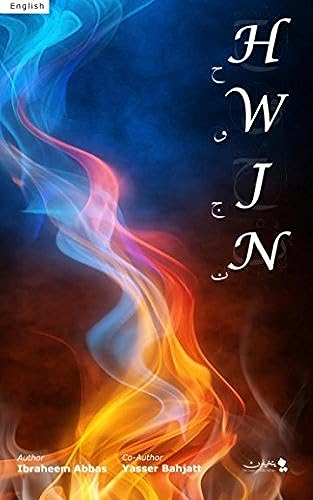
translated by Yasser Bahjatt
first English edition: 2013, Yatakhayaloon
grab a copy here or through your local independent bookstore or library
Arabic speculative fiction in translation has become more common since 2000, but the number of titles is still unfortunately small. HWJN, then, is an important example of what Arabic SFT has to offer, and it’s thanks to Saudi author Ibraheem Abbas and translator Yasser Bahjatt, who co-founded The League of Arabic Sci-Fiers, that we have HWJN and other similar works.
HWJN introduces us to a new world—the realm of the Jinn. Narrator Hawjan (HWJN) speaks directly to the reader throughout the story, explaining how he fell in love with a human woman and what he ultimately needed to do in order to save her life.
Part guidebook, part confession, HWJN details how humans gradually moved into neighborhoods inhabited by Jinn (invisible to humans) and others who occupy another dimension. Many Jinn chose to move, but Hawjan, his mother, and his grandfather stayed in the house they had lived in for years, even as a human family moved in. Sawsan, their daughter, is a highly-intelligent med school student, and immediately attracts Hawjan’s attention. When her friends start experimenting with a Ouija board, Hawjan takes the opportunity to communicate directly with Sawsan. This initially frightens her (and her friends), but then the two gradually draw close, communicating via a tablet (Hawjan is able to materialize just enough to move Sawsan’s fingers in order to type messages to her).
When Sawsan finds out that she has a brain tumor, Hawjan realizes that she has become a pawn in a much larger feud that involves his own father’s death and powerful devil Jinn. In order to save Sawsan, Hawjan must marry a fellow Jinni and give their son to the leader of these Jinn. Hawjan is helped by Eyad, Sawsan’s human admirer, and together they defeat Hawjan’s enemies and stop Sawsan’s father from falling into their clutches out of his desperation to save his daughter.
Given that this book comes from a culture whose values are sometimes quite different from that of the West, some references and assumptions might be off-putting to Anglophone readers. The subordinate role of women in HWJN, for example, might make some Western readers uncomfortable. Nonetheless, it is precisely by reading books that come from traditions and languages different from our own that we can more fully understand other cultures and the people who form it. Thus HWJN is not just a book but another step on the way to forging ties with people across the globe.
Of course, without translator Yasser Bahjatt, we wouldn’t have HWJN in English at all. And the translation is very good. And yet, as with some works of SFT, the text would have benefitted from a more thorough edit, given the not-insignificant number of spelling and grammatical errors. Despite this, HWJN offers us fascinating glimpse into the world of the Jinn and Arabic culture.
